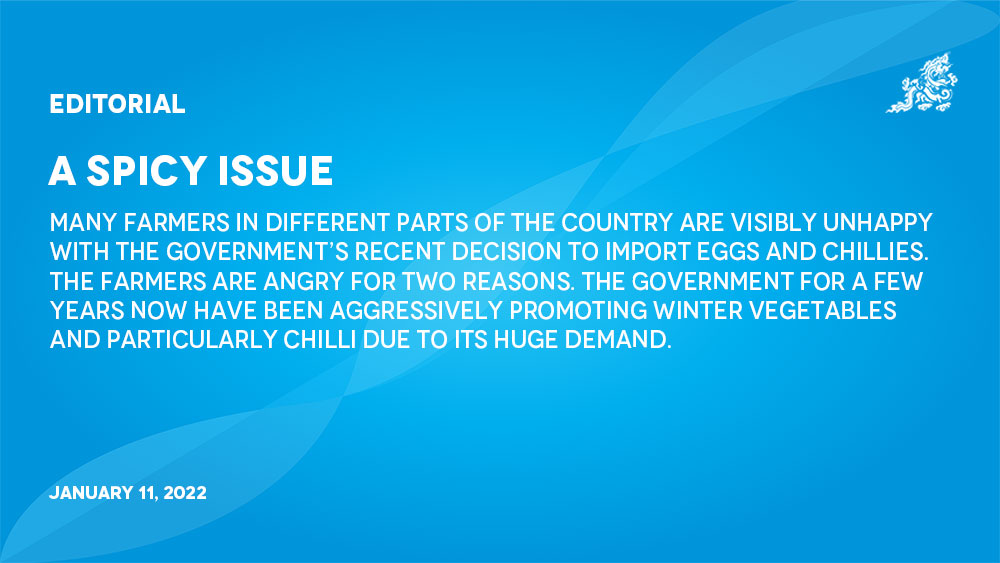Many farmers in different parts of the country are visibly unhappy with the government’s recent decision to import eggs and chillies.
The farmers are angry for two reasons. The government for a few years now have been aggressively promoting winter vegetables and particularly chilli due to its huge demand. They are worried the import is going to kill their chances of pocketing a good return on their investment.
The decision they say is like treating the symptoms and not the disease. The problem according to them is the middleman buying from them and supplying to the markets at exorbitant prices.
As always the shortage has prompted some to import chillies illegally. Shopkeepers triple the price and sell them discreetly. The average Bhutanese buyer doesn’t care where the chillies come from. The authorities have to disseminate the results of tests carried out on imported chillies and make people aware of the dangers. Nobody wants to die from eating contaminated chillies.
When illegally imported chillies are caught midway, what happens to those on duty who failed to stop them at the entry gate? Perhaps it is this reason why not much is seized at the gate or fueling more imports. Given the greater dividends against a small or no chance of getting caught, the business continues.
Urban dwellers are relieved with the government’s intervention. Buying a tray of eggs for Nu 750 is beyond the reach of many. But they know this solution is not going to last.
The easy way out is to lift the ban. But it’s not the solution. It will only crush whatever little progress the extension workers and hard-working farmers have accomplished in the last five years for our food self-sufficiency. Substitutes must come from within and production must be sustained.
When supply goes down, the poorest of the poor are affected the most, especially in urban Bhutan where they cannot dry chillies. Inflation overall has spiked in the past two years – from the price of essential commodities to house rents. The average citizens are digging deep into their savings to eke out a decent living and to explore alternative sources of income to survive the pandemic.
After numerous lockdowns and some restrictions still in place, many are struggling to make ends meet. Loss of income and livelihood for many has resulted in growing debt from unpaid rents, and the soaring price of food items is rubbing salt on injury.
The farmers have invested heavily in winter vegetable production. Some even took loans. Even before the temporary lifting of the ban on chilli, the pests and diseases marred their chances. Building the farmers’ capacity to deal with common pests and crop diseases would minimise the impact on production.
The nationwide lockdowns have given us enough lessons. Devising a functional distribution system for local produce be it eggs or chillies is a priority.


